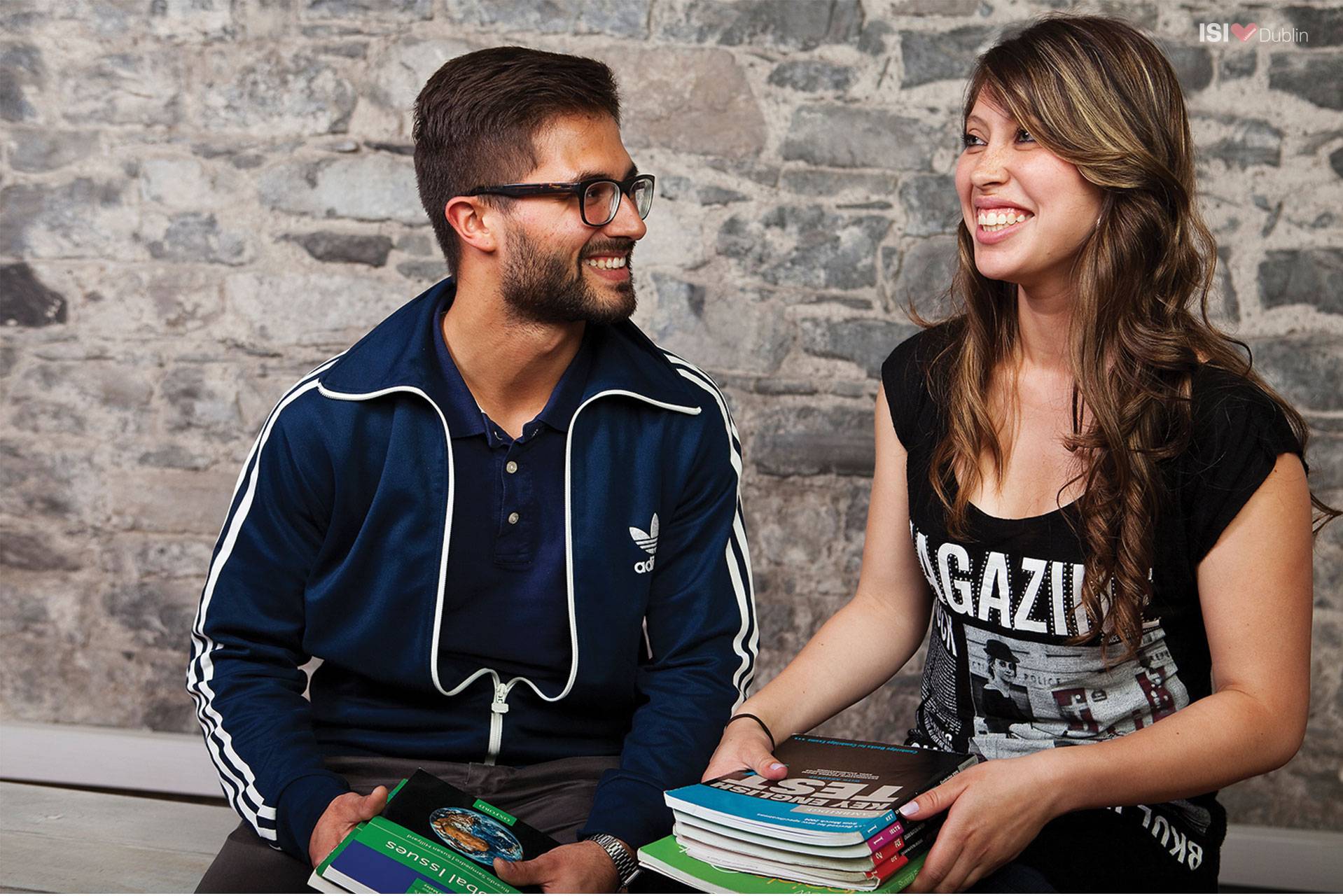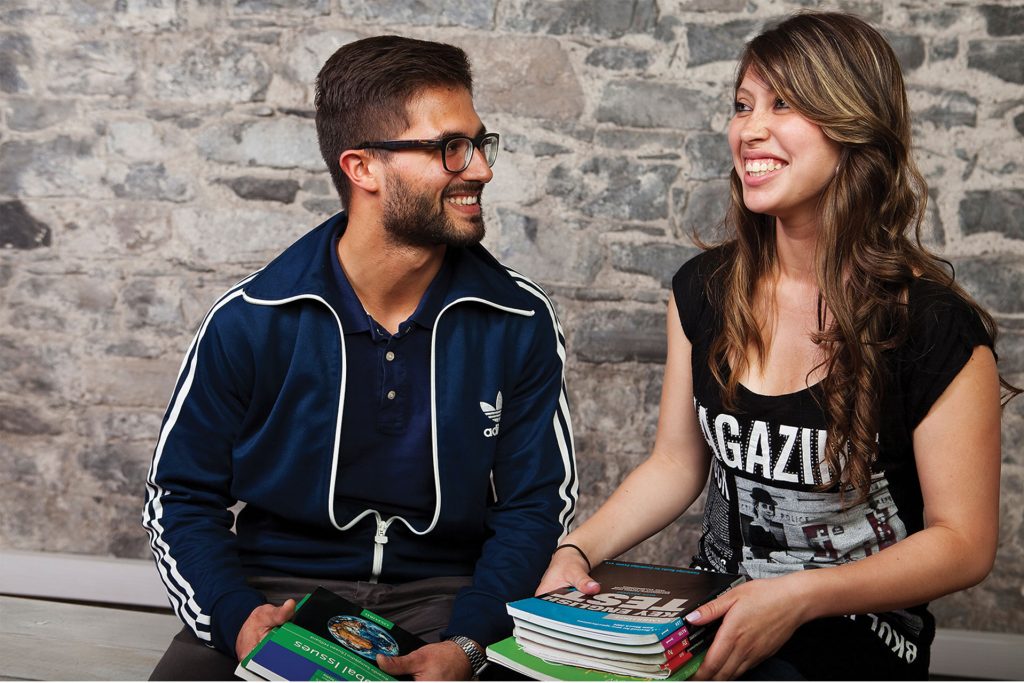
The Irish sometimes like to boast that the best English in the world is spoken in Ireland. The Dubliners may sometimes go even further, and declare that the best English in the world can be heard in Dublin!
Hiberno-English
That said, the type of English spoken in Ireland, known as Hiberno-English, is quite different from the English as spoken in the UK or the USA. These differences can sometimes create confusion for newcomers, since many of them are false friends. They may sound and be spelled exactly the same as English words, but their meaning is not at all similar.
The following is a short list, with brief explanations, of several such slang words, phrases, idioms and false friends all unique and distinct to Hiberno-English. All of them are still very much in use. You are likely to come across quite a few more during your time here…
Acting the maggot – fooling around, being silly
After – equivalent to the use of ‘just’ in English, as in ‘I’m after losing it’ meaning one has just lost it
Chancer – a crafty person, a cheat, who will try anything to get an advantage over others
Chicken – a term of endearment (as in ‘Hey chicken’), but not to be confused with the American slang term ‘chicken’, which has a disparaging connotation of cowardliness or nervousness
Craic – fun, merriment, hilarity, entertaining conversation, as in, ‘The craic is mighty’
Culchie – an unflattering term for someone from rural Ireland, not the big city
Divil – derivation of ‘devil’
Donkey’s years – a very long period of time, as in, ‘I haven’t seen him in donkey’s years…’
Do be – a carryover from the Irish language into English, expressing an action one does usually and often, as in, ‘I do be coming here every day’
Dosser – a lazy person, an idler
Eejit – a silly person, a fool, derived from the English word ‘idiot’
Faith – an exclamation, sometimes meaning ‘in truth’, or sometimes expressive of disbelief, as in ‘I see faith!’ when one has just heard some unlikely news
Fair play to you – colloquial way of telling someone well done, good job, congratulations
Gaff – one’s house, not to be confused with the English ‘gaffe’, meaning a social blunder
Get out of that – also ‘Go way outta that’, meaning ‘Come off it’ or ‘Don’t be silly’
Gob – a mouth
Grand – as in ‘All right’, or ‘Okay’, or ‘Fine’, not to be confused with the English usage which has much more impressive connotations of grandeur, grandiosity, opulence, size, etc
Howya – contraction of ‘How are you’
Jacks – restroom, bathroom, toilet, lavatory
Knackered – to be tired, worn out, exhausted
Massive – a compliment, indicating one is handsome, attractive, pretty, as in ‘You’re only massive!’
Me – the Irish often say ‘me’ in place of ‘my’, as in ‘me ma’ for ‘my mother’
Me aul flower – a term of endearment but also often used by strangers when talking to each other
Mooch – to loiter suspiciously or to loaf around, as in, ‘Stop mooching around and do some work!’
Ould – derived from ‘old’, sometimes appears as ‘auld’, ‘oul’ or ‘aul’
Only – a means of amplification, not unlike ‘very’, as in, ‘You’re only gorgeous!’
Shaffoge – nonsense, rubbish, as in, ‘You’re talking complete shaffoge!’
Sketch – signal to look out or run for it to escape authority, sometimes used by schoolchildren as a warning to each other, an order to watch out, the teacher is coming, etc
Skinnymalink – a tall thin bony person
Slagging – akin to teasing or mocking banter, meant to be taken in the right spirit and sportingly, as in ‘I’m only slagging you’ (not to be confused with hostile bullying)
Sound – unlike the standard English usage, which refers to what you hear in your ear, in Hiberno-English this is an adjective meaning someone is okay, nice, solid, reliable, etc, as in, ‘He’s sound’
Soft – can refer to misty, rainy weather, but also to a person who is overgenerous and gullible
The state of ya – implying that one is in a messy, disheveled or undignified state
Trinner – slang term for a student of Trinity College Dublin, sometimes used in a derogatory sense
Whatever you say, say nothing – a West of Ireland expression of secrecy, suggesting one should speak carefully, hold one’s cards close to one’s chest and not divulge any compromising information
What’s the story – a common everyday greeting between friends, meaning what’s up, how are things, what’s going on, etc
Ya – you
Yer – your
Yer aul wan – your mother or your wife, usually the former
Yer man – common term for someone whose name one doesn’t know, or whose name one would rather not say, as in ‘I saw yer man from the series just now…’
Yoke – another way of saying ‘thing’, usually something one has not seen before (as in, ‘What’s that yoke over there?’), and not to be confused with the yolk of an egg
Yous – plural of ‘you’ in Dublin slang, sometimes pronounced and spelt ‘Yiz’
English in Dublin
…That’s just to begin with. Like every other country, Ireland has its own unique slang but don’t worry, you’re sure to get used to it after living here for a while. Good luck!

